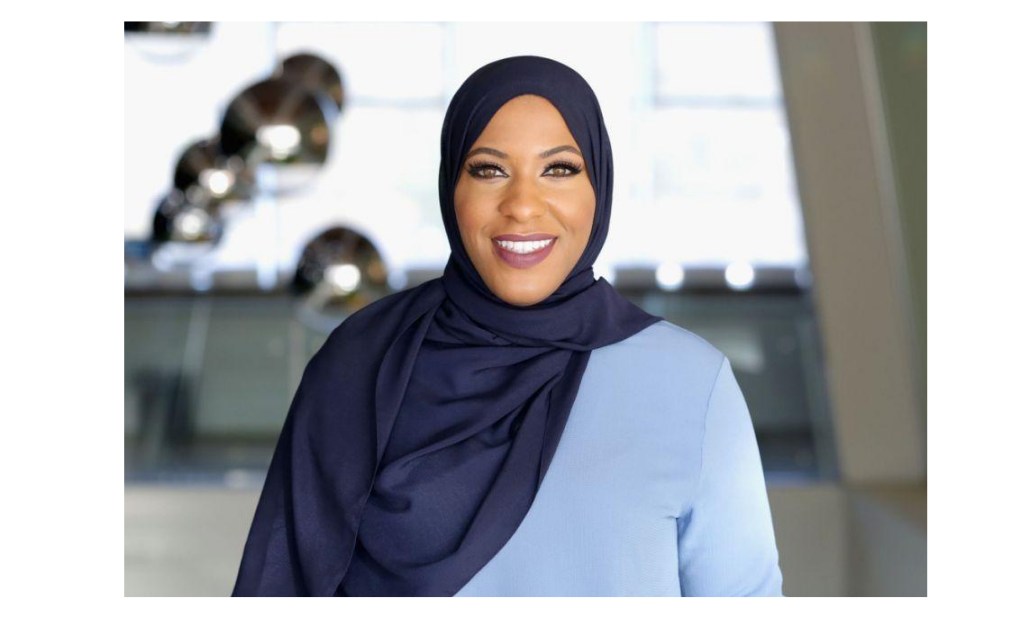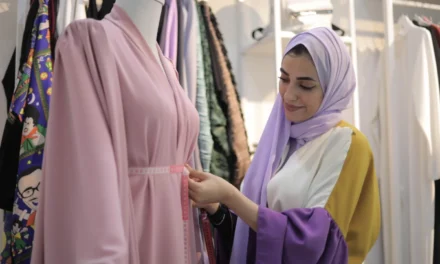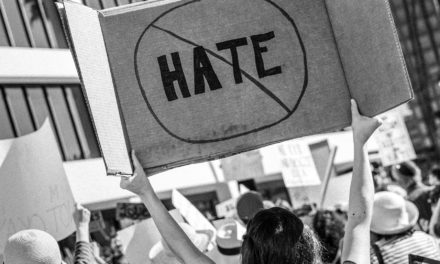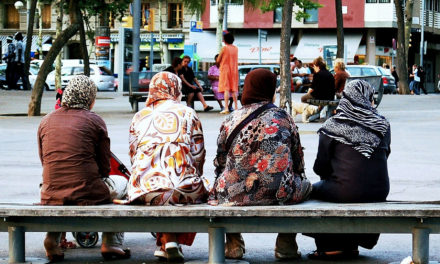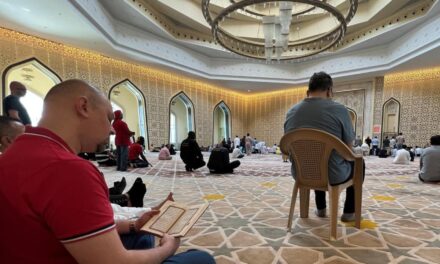Vinciane Ngomsi for Yahoo
Photo by Alison Buck/Getty Images for Teen Vogue
Ibtihaj Muhammad made history four summers ago when she became the first Muslim American to wear a hijab while representing Team USA at the Rio Olympics. Since her 2016 debut, the bronze-winning fencer has gone on to become a Nike athlete, help launch Barbie’s first doll fencer and author three books. Her children’s book, “The Proudest Blue: A Story of Hijab and Family,” became an instant New York Times bestseller.
The 34-year-old spoke with Yahoo Sports about the state of race relations since her 2016 debut, voter suppression and advice she’d give to Black women hoping to one day succeed in the sport of fencing.
Ibtihaj Muhammad: Like a lot of America, I have been in my apartment for the last several months. So, I’m a little disconnected on what’s been occurring outside what is being reported. But, I think what this pandemic and wave of protests has helped us understand is we collectively hold the power to dismantle these outdated systems and replace them with new, inclusive ones. This ideology that your vote doesn’t count is a misconception. This is your opportunity to not only show up for yourself, but also your community. I’m voting because I believe that Black lives matter and I recognize certain structures that exist were built to oppress and devalue Black and brown people.
As dark as 2020 seems to have been, I’m hopeful that our light is in November and I’m looking forward to change.
YS: Since your Olympics debut, how far do you think we have advanced as a nation when it comes to diversity in sports and accepting competitors of different backgrounds and religious groups?
IM: The Rio Olympics was a huge moment for people of different backgrounds, not just ethnically but also religiously. I feel like there were a lot of firsts. Take for example fencing, gymnastics and swimming. Black women really made a mark not just for our respective sports but I would argue for society as a whole. When you look at the state of sport, it’s in a different condition than our nation in terms of the progression you see in equality and representation. That’s the beauty of the game, a stable foundation for diversity and inclusiveness. A “come as you are” space if you will.
When I think about my own journey with sport, I compete to honor the people who came before me and fought for the ability to play on a national or global stage. Though some weren’t able to experience these rights, I’m nonetheless grateful for their sacrifices. They paved the way for people like me and other athletes out there to continue to push and ensure we have a presence in these sometimes non-traditional spaces.
YS: What are some advancements do you think the International Olympics Committee (IOC) still need to make to honor their commitment of zero tolerance when it comes to bullying or discrimination?
IM: I can’t speak to specific rules that have been implemented by the IOC. But, I know there’s always room for growth and progression for the way we as a global community respond to bullying or discrimination. I’ve had my own experiences with both and I know that so much of my determination to push past those different obstacles remains unique to me. Hate has no place in our society and we all have to commit to doing what’s necessary to guarantee we create a future rooted in equality and zero tolerance for any acts of prejudice whether online or in person.
YS: More women, especially hijab-wearing women, are fencing because of you. That’s a great testament to your influence and perseverance. Do you have an everyday mantra that keeps you going?
IM: My everyday mantra is to never allow your fear to precede your faith. I truly believe that there is a plan for all of us and we have to hold onto that rope of faith in difficult moments. For many of us minorities, the road is a lot more difficult than our teammates and peers. But, that shouldn’t deter or scare us into accepting those challenges. At some point in my childhood, I made a conscious decision to abandon that notion that other people’s opinion about me mattered. It is so crucial to our development to love ourselves and to be our own biggest cheerleaders.
Take Muhammad Ali, for example. I believe he likely experienced nervousness and anxiety ahead of his fights. But, it’s how you manage it. He did such an incredible job of hyping himself up and that’s one of the biggest takeaways I took from his time here with us which was learning to show up for myself.
YS: One thing you and I have in common is that we’re both huge sneakerheads. What’s your favorite pair you own and what shoe is on your “must covet” list?
IM: Oh, definitely my Off-White x Jordan 4 Retro. I love a monochrome moment and although I haven’t worn them yet, I’m already thinking of how I’ll pair them in the future. My everyday shoe, rain or shine are the Nike Air Force 1 Sage Low. I like how they’re a bit more feminine than traditional Air Force 1 sneakers.
The shoe I always cop no matter what colorway are the original Jordan 1 Retro. I don’t care if they’re low, mid or high, I have to have them.
